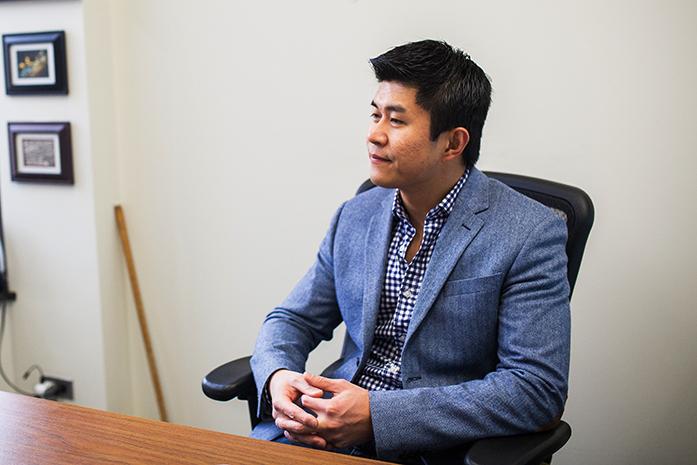By Madeline Murphy Smith
[email protected]
A University of Iowa professor is working to make special education more accessible in China.
Youjia Hua, an associate professor of special education at the UI, said special education in his home country of China is segregated for students who have special needs.
Hua said children with disabilities in China are the most likely to be overlooked in terms of their education.
“People willingly overlook those with special needs,” he said “China is a big country so even those in rural areas without disabilities don’t have enough resources to support all children.”
He said although there are teacher education programs for students with more obvious disabilities, such as blindness or deafness, others don’t receive such services.
“Students with learning disabilities, autism, emotional disabilities, they haven’t been recognized in terms of having an efficient teacher-education program,” he said.
Hua came to the United States in 2000 to learn more about special education. He received a Ph.D. in the field in 2008, and soon became increasingly interested in Applied Behavioral Analysis.
Applied Behavior Analysis uses an understanding of why behavior occurs to address a wide range of social issues, including helping individuals to learn.
“Applied Behavioral Analysis is based on the science of behaviors,” he said. “[It] is appealing to special-education teachers because it does not focus primarily on the disability of a particular student.”
Hua and two faculty members created the first-of-its kind education course for teachers and parents of students with autism. The course will allow these individuals to be Board Certified Assistant Behavioral Analysts.
He said the four-class core sequence is designed for instructors and parents to learn a systematic way of teaching the analysis and how it relates to special education. He said this will help teachers and parents be better prepared to instruct those with special needs.
Chengan Yuan works at the Lindquist Center as a lead instructor for the online analysts course to train future behavioral analysts in China.
“People are aware of the need for special education but they realize special education is hard work,” he said.
Yua said a lot of evidence based practice needs to be used when teaching students with special education. He said teachers in China are not using evidence-based practice because they are not use to dealing with special needs students.
“I think the trend in China now is: If we can teach students with special needs then they will be more included in society, so why not do that?” he said.
Working closely with the online course is Fan-Yu Lin, an adjunct faculty for the course and provides supervision for the practicum.
She said the program will provide direct training for teachers that want to learn the analysis and apply it to the classroom.
“Some teachers work in inclusive settings like an elementary school and don’t know what to do with the students,” she said.
The program, she said, will give teachers the tools they need to properly teach students with special needs.
“This program is innovative and has a unique international component. When teaching this course we have to adapt to the different culture of China and take into consideration the time zone change when planning out instruction,” she said. “That makes it a unique and exciting course. I’m looking forward to the future of this program.”



